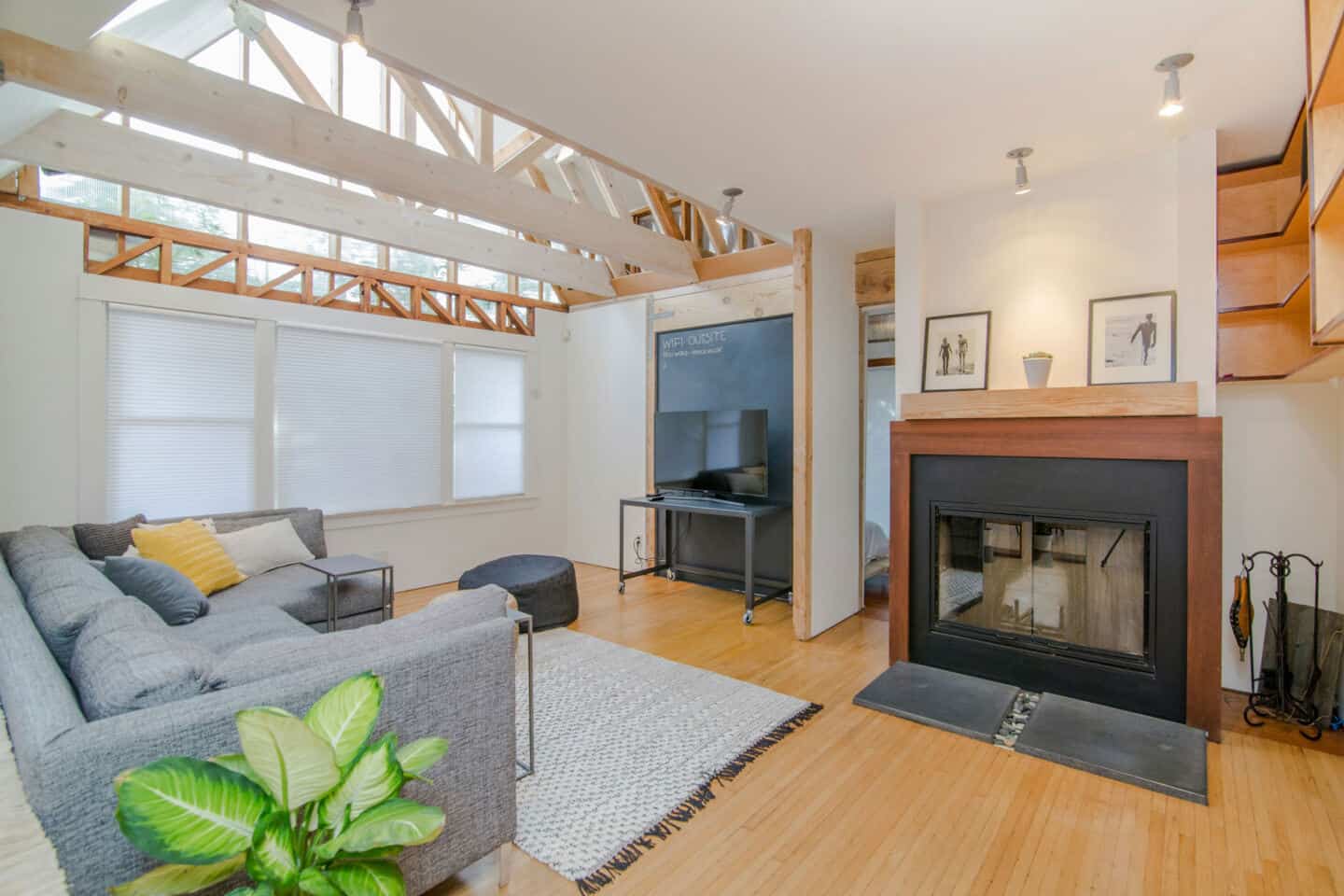
How do you know when it’s time to move or renovate your home? This is a really difficult question and one that isn’t necessarily as easy to answer as you would think, because you can completely transform a home through renovation. However, there comes a point when home improvements reach their limitations and then it makes more sense to relocate.
So let’s take a look at some of the signs that may indicate whether it is time for you to move or renovate.
1. Space Limitations
It is very important to weigh up your options if your home now feels too small. As your family grows or your needs change you can expand and reconfigure your home in many ways. Our flat is definitely too small for our family as it’s only got two bedrooms and we now have two children. So we will definitely be looking into a loft conversion soon.
If you have already expanded your home and you still don’t have the space you need for your family, it might be time to move. For example, if you need additional bedrooms or a larger living area and you’ve already done a loft conversion, added a glazed extension and made the most of your garden and there’s no feasible way to add more space to your existing property, relocating might be the best option.
2. Planning Restrictions

Photo by Outsite Co on Unsplash
It might be that you can’t make the necessary extensions to your home to make it fit for purpose and give you enough room. If the changes you require are not permitted by your local planning authority, you may have no option but to move.
You can find out which improvements usually require planning permission at sites like Planning Portal. It’s important to apply for planning permission in advance if it is required. Undergoing improvements without planning permission could result in you being heavily fined or ordered to reverse the changes if you get found out. If your plans get rejected, you can still contest the decision, but you’ll need to invest in legal support to argue your case.
There are some areas around the country that are classed as conservation areas. In these areas, renovations that would normally be permitted in other areas may not be allowed (such as installing uPVC windows or replacing the roof). If you live in a historic building that is classed as ‘listed’, there could also be a lot of restrictions as to how you can improve your home. In these cases, you’ll need to research what is allowed and what isn’t, and you’ll likely have to fight harder to get your plans approved.
Sometimes neighbours can play a part in the planning rejection process. It’s important to check that neighbours aren’t affected by your proposed home improvements (such as adding an extension that could cast shade over their garden) and making sure they are happy with your plans so that they don’t take legal action. If neighbours strongly object to your plans, moving home may be your only option.
3. Neighbourhood Considerations

Photo by Nicolas J Leclercq on Unsplash
Unless you’re living in a mobile home or on a houseboat, there’s little you can do to change the location of your home. If the area you live in no longer suits your needs or makes you happy, it could be a sign that you’re better off moving.
No amount of home improvements will fix a bad location. Home renovations can’t reduce your distance to work or improve the shops and schools in your local area or make your neighbours less troublesome. If you decide that the location is a deal breaker it is probably time to consider relocation.
Start exploring different areas so you can decide whether other areas will better meet your needs. Work with real estate agents like MGP Real Estate to see what properties are available in more suitable areas and what you can afford.
4. Financial Factors

Photo by Towfiqu barbhuiya on Unsplash
It is very important to compare the costs when you are considering whether to move or renovate. Major renovations can be very expensive and may not always increase the value of your home enough to justify the expense. If the cost of buying a new home is comparable or even lower than renovating, moving might be more financially prudent.
We are in this situation actually. We love where we live. We love the general area, the location and the road that we live on. We’re very happy here and would love to stay. But as I said, our flat is simply too small. We are planning to convert the loft to increase the living area. However, we had an estate agent round and asked for his advice on how much value it would add. He strongly advised us against a loft conversion because he said there is a ceiling price in the area for flats. The increased value it would add would make the flat comparable in price to a 3-bedroom house, so nobody would buy a three-bedroom flat at the same price.
We may or may not take this advice. If we want to remain living here and not relocate it may be our only option as housing in this area is incredibly expensive and we’d need to spend two to three times the cost of our flat to get a 3-bedroom house, potentially in a slightly less desirable road. Whereas for about £50k we could get the extra room that we need from a loft conversion.
5. Structural Limitations
Structural aspects of your home also play a factor in deciding whether to move or renovate. If your house has fundamental issues, such as foundational problems, poor layout, or ageing infrastructure that would require extensive work to rectify, it might be more practical to move to a home that doesn’t have these issues. This is particularly the case if the cost of the work required will exceed the value of the house once it is complete.
6. Market Conditions

Photo by Different Resonance on Unsplash
Consider the housing market. In a buyer’s market, you might find great deals on new homes, making it a good time to move. In a seller’s market, you might get a high price for your current home, which could offset the cost of buying a new one.
7. Time and Disruption
When choosing whether to move or renovate, consider the time and disruption involved. Renovations can take months and can be very disruptive to daily life. If you cannot live through the inconvenience of a major renovation, moving might be a less stressful option.
This is definitely something that puts me off the idea of a loft conversion. I am not good at living in chaos and I can’t imagine the mess that will be created. In an ideal world, I would move out while the work is being done, but as it is not a quick process that will likely be impossible.
8. Future Plans
Reflect on your long-term plans. If you know that you are not in your forever home and you see yourself living in a different location in the future, moving now rather than investing in renovations could be the wiser choice. This is especially relevant if you plan to relocate for work, family, or lifestyle reasons in the next few years.
9. Return on Investment

Photo by Tierra Mallorca on Unsplash
When deciding whether to move or renovate, it is wise to evaluate the return on investment. Not all renovations will significantly increase your home’s value. If the improvements you need or want to make are highly personalized and might not appeal to future buyers, moving could be a better financial decision. This is the case with our loft conversion, which may make more sense for us if we plan to stay here for the long-term rather than sell and move on.
10. Emotional Readiness for Change
The last thing that may impact your decision whether to move or renovate is your emotional attachment to your home and your readiness for change. If you love your home and its memories but it no longer serves your needs practically, you might lean towards renovating. But sometimes, the desire for a fresh start in a new environment can outweigh the benefits of staying put and renovating. If you feel ready for a new chapter, moving might be the right choice.
